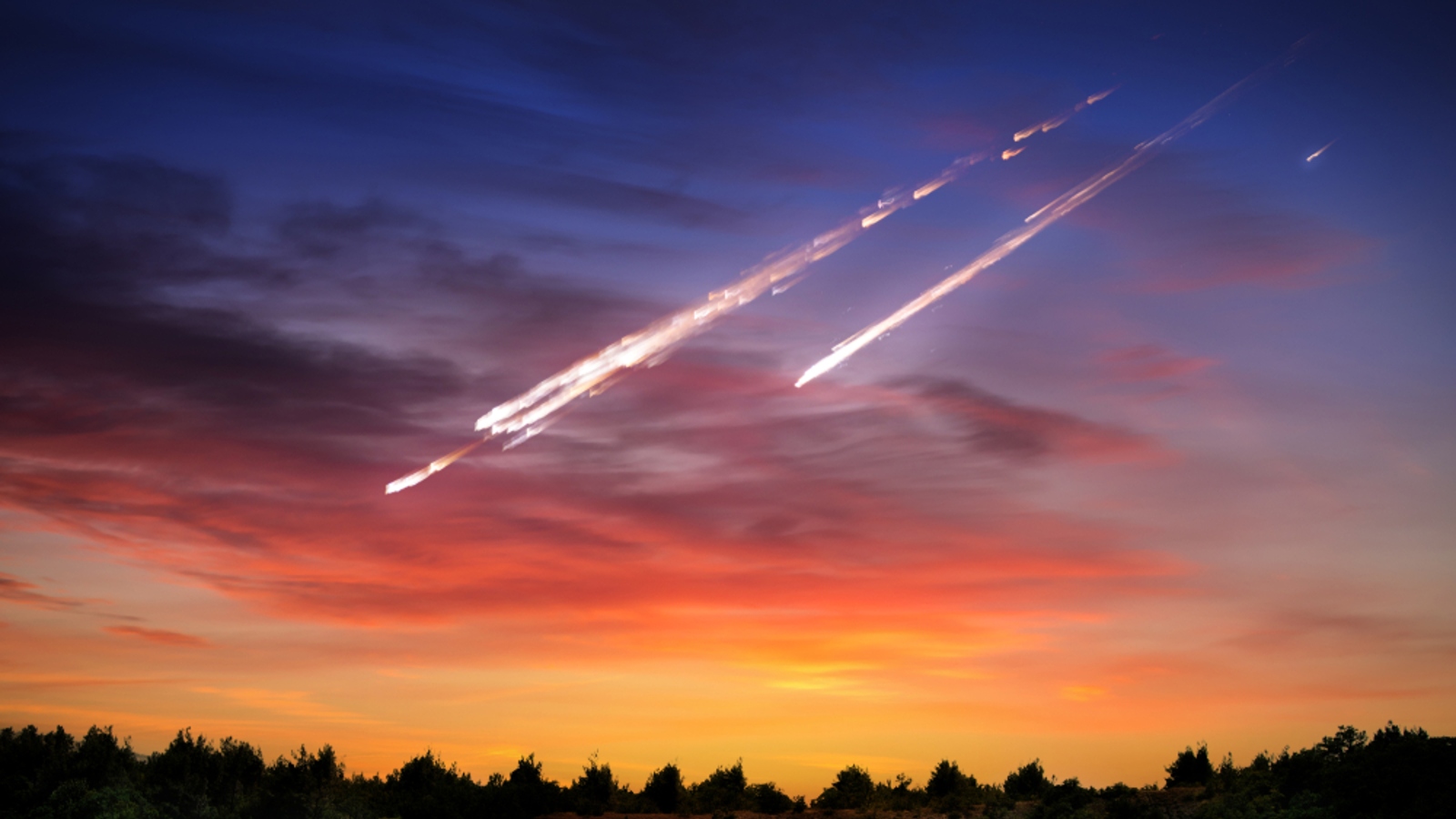Woman in France hit by suspected meteorite while drinking coffee on her porch
The woman was sat on her porch when she heard a loud "bang" from the roof and a pebble-size rock pinged into her chest. But not everyone is convinced it was a meteorite.

A woman in France may have just become the second-ever known person to be hit by a falling space rock after a tiny meteorite fragment allegedly bounced off her roof and struck her in the chest, leaving her with minor bruises.
The unnamed woman, who lives in the town of Schirmeck in northeastern France, was on her porch drinking her morning coffee at around 4:00 a.m. local time on July 6 when she heard a loud "bang" from the roof and then felt something ping into her ribs, French to English news site The Connexion reported.
Initially, the woman thought that she had been hit by a flying animal like a bird or bat before she discovered a pebble-size rock at her feet. She took the rock, which weighs around 1.8 ounces (50 grams), to Thierry Rebmann, a geosciences consultant and formerly a paleogeology researcher at the University of Basel, for examination.
The pebble looked similar to volcanic rock, but it showed signs that it had been superheated in the atmosphere. It was mainly made from iron and silicon, which are common in meteorites, Rebmann told local news site France Bleu Alsace. "Finding a meteorite is rare, but in addition to being in direct contact and having it fall on you from the sky, it's an almost unique case," he added (translated from French).
However, some experts have questioned whether the rock is actually a meteorite, France Bleu Alsace reported, although none of these experts have been named and their reasons for doubting Rebmann's findings are unclear. (Rebmann suggested that other scientists should examine the rock, as he is not a meteorite expert.)
Related: Rare meteorite, a 'relic of the early solar system,' falls on a driveway in England

The odds of being directly hit by a meteorite are astronomically slim. Several thousand meteorites likely hit Earth every year, but most of these go unnoticed because they either hit the ocean, fall in uninhabited areas or are extremely small after burning off much of their mass while falling through the atmosphere. Estimates for the exact chances of being hit by a meteorite vary widely from around 1 in 1.6 million to 1 in 840 million, largely due to the uncertainty about how many meteorites hit Earth.
Sign up for the Live Science daily newsletter now
Get the world’s most fascinating discoveries delivered straight to your inbox.
Until now, only one person has ever been officially confirmed as being hit by a meteorite. In 1954, Ann Hodges, a woman from Sylacauga, Alabama, was struck by an 8.5-pound (3.9 kilograms) meteorite that smashed through her roof and hit her radio, before rebounding into her lower torso while she was sleeping, according to Smithsonian Magazine. Hodges was hospitalized and developed a gigantic bruise on her side but lived to tell the tale.
In 2020, researchers in Turkey translated a series of old letters and came across accounts of a man being killed and another being paralyzed by falling space rocks in 1888, according to Universe Today. But this evidence remains inconclusive.
There have also been some close encounters in recent times. In 2021, a woman in Canada narrowly missed being struck by a 2.8-pound (1.3 kg) meteorite that crashed through her roof and landed on her pillow. And in May this year, a 6-inch-wide (15 centimeters) meteorite crashed through the roof of a New Jersey home and was later confirmed to be a 4.6 billion-year-old chunk of Halley's comet.
In November 2022, a man in California claimed that a fireball meteor started a blaze that burned down his house, although this has not been conclusively proven.

Harry is a U.K.-based senior staff writer at Live Science. He studied marine biology at the University of Exeter before training to become a journalist. He covers a wide range of topics including space exploration, planetary science, space weather, climate change, animal behavior and paleontology. His recent work on the solar maximum won "best space submission" at the 2024 Aerospace Media Awards and was shortlisted in the "top scoop" category at the NCTJ Awards for Excellence in 2023. He also writes Live Science's weekly Earth from space series.









